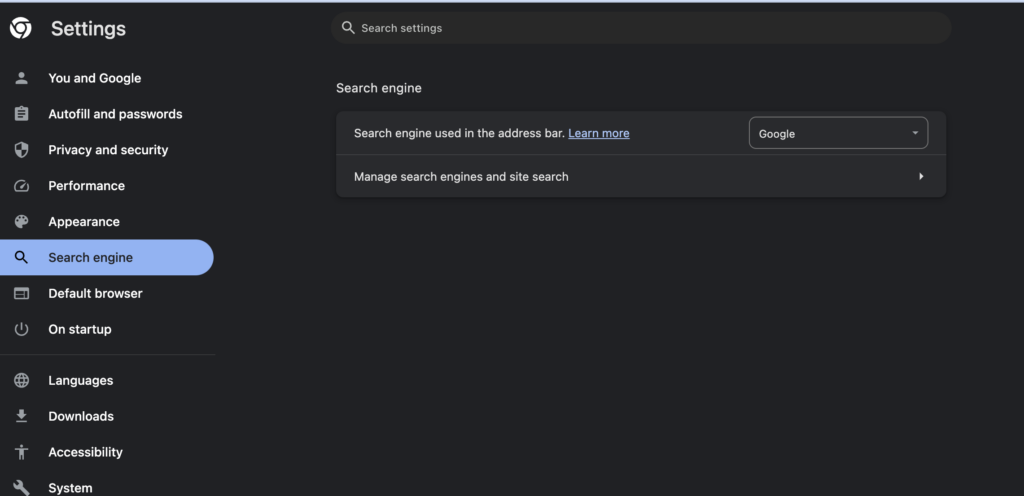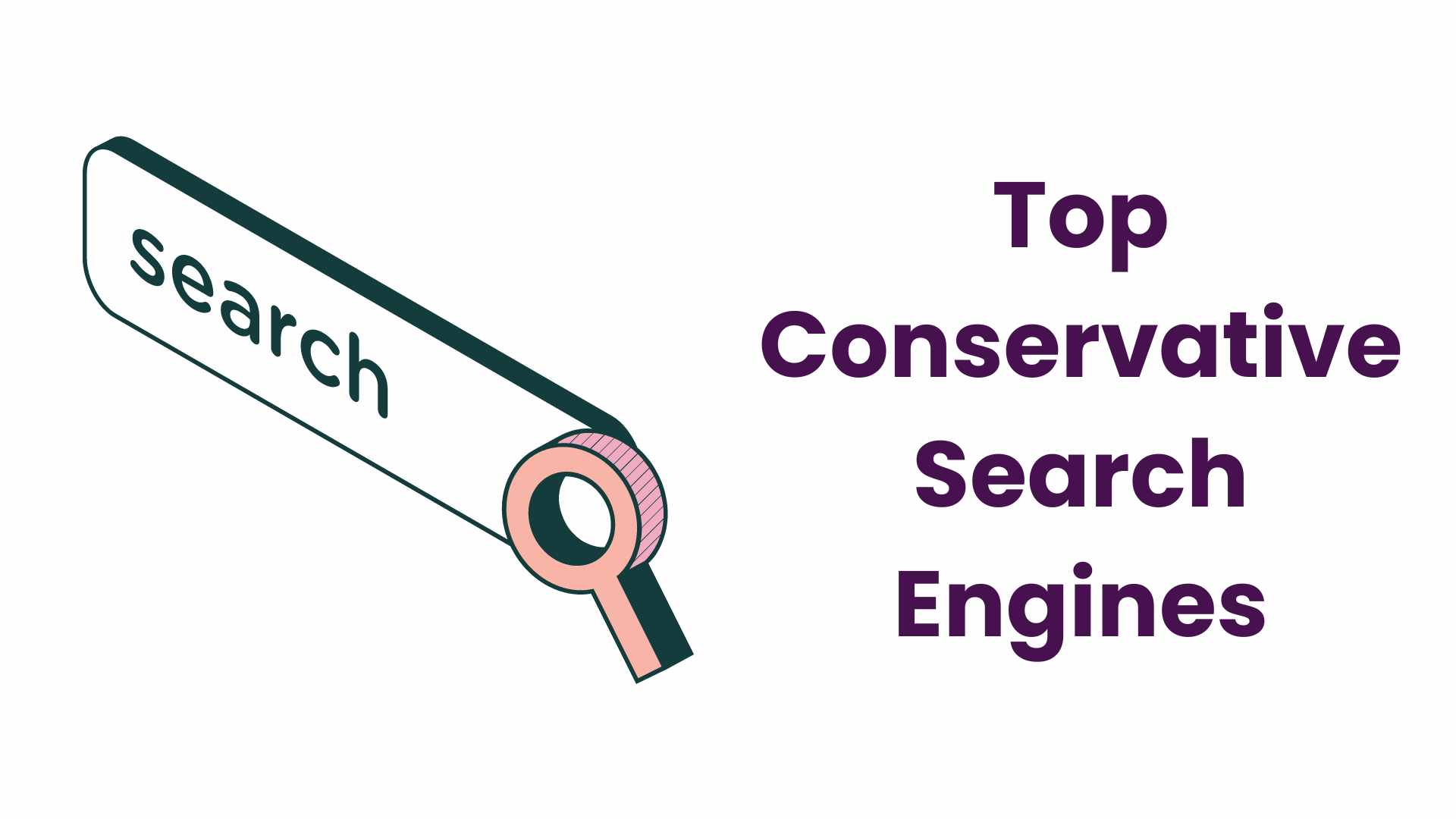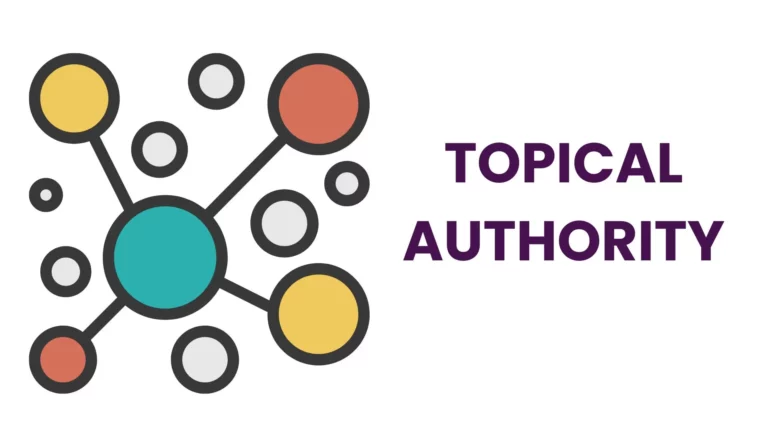In search of a search engine that respects your principles and privacy? Conservative search engine platforms provide a necessary alternative in 2024, ensuring non-biased results and secure, private browsing. This article highlights the leading platforms that stand out for their dedication to conservative values and privacy, giving you the control you deserve over your online experience.
Key Takeaways
Conservative search engines have gained traction by prioritizing user privacy, providing unbiased search results, and aligning with conservative values, distinguishing themselves from mainstream search engines by not tracking or storing personal user data.
Unlike ‘popular search engines’, conservative search engines prioritize user privacy and unbiased results.
Top conservative search engines like DuckDuckGo, Startpage, SwissCows, Qwant, and Brave offer unique features such as family-friendly content filters, customizable interfaces, private browsing modes, and ad-blocking capabilities.
For users concerned about privacy and ideological balance, switching to a conservative search engine can be an easy process within their browser settings, and these search engines are increasingly being used for research to obtain diverse and balanced information.
Understanding Conservative Search Engines

In the current age, where digital data is a significant form of power, conservative search engines have surfaced as sanctuaries for those in pursuit of an alternative online search experience that honors their privacy preferences and provides impartial search results. Formulated to offer a counterpoint to what some believe is the bias found within major search engines towards political ideologies, these platforms represent a principled commitment to internet searches—guaranteeing user confidentiality regarding their search history and ensuring alignment with conservative principles. Such alternative search engines are indicative of the diversity present within today’s digital environment, providing spaces where users who uphold conservative ideals can perform secure searches without sacrificing their beliefs.
The web has become an arena for contesting thoughts and belief systems. Amidst this landscape, many conservative-oriented search engines emerge as champions prioritizing user data security along with pledging devotion towards disseminating factual content free from popular media influence. The community identifying themselves as conservatives particularly finds refuge on these platforms—where prominence in delivered results stands on veracity and genuineness rather than being tainted by the prejudices they associate with leading mainstream providers like Google. Notable amongst such specialized service providers are:
- DuckDuckGo
- Startpage
- Swisscows
- Qwant
These mentioned services extend an option divergent from traditional models while catering specifically to nuanced requirements characteristic of individuals holding onto conservative values. These conservative search engines were developed with a focus on privacy and conservative values, emphasizing the importance of being able to search privately on these platforms.
Bias Filter
Internet users in search of an unbiased search experience are increasingly turning to conservative search engine alternatives. This trend is largely driven by a belief that mainstream search engines, such as Google, exhibit liberal biases—prompting a swath of internet users to explore options that offer perspectives they feel aren’t influenced by the dominant political narratives. In particular, concerns regarding political bias resonate 15 times more among conservative individuals than other groups, underscoring their significant mistrust in the way big tech companies may sway search results.
In response to this demand for a balanced approach to information retrieval, conservative-oriented platforms like DuckDuckGo have stepped up with commitments to minimize content bias and ensure an impartial online exploration environment. These alternative providers prioritize offering a distinctly conservative-friendly avenue for searches—a welcome deviation from conventional google alternatives—and propose new viewpoints within our digital ecosystem’s informational landscape.
Privacy Protection
Private search engines distinguish themselves by:
- Choosing not to retain user data or IP addresses
- Keeping users’ search activities confidential
- Securing the overall search experience through encryption of user information
- Avoiding any sale or distribution of such data to third-party entities
Contrary to some beliefs, using a private search engine does not slow down the browsing experience. In fact, private search engines often provide a faster browsing experience compared to commercial search engines due to their avoidance of data tracking and targeted advertising.
Services like DuckDuckGo empower individuals with tools for conducting online searches privately. They offer options that eliminate advertisements and allow anonymous browsing. These private search providers are dedicated to reinforcing user privacy without yielding it up in exchange for security threats posed by intrusive ads and price trackers present on many traditional advertising platforms.
Family-Friendly Content

For those who hold conservative values, navigating the web isn’t simply about accessing data. It’s also about preserving familial principles. To this end, SwissCows prioritizes content suitable for all ages by filtering out explicit material and ensuring a secure online experience for younger users. It stands out amongst conservative search engines with its commitment to blending an accessible user interface that appeals across generational lines while upholding both privacy and morally responsible internet use.
Similarly, Qwant reinforces these family-oriented ideals by offering a child-centric search mode designed to cultivate an educational yet safe virtual space free from adult content. Such attributes solidify the role of conservative search engines as the preferred option for families intent on shielding their web-based pursuits from potentially harmful influences.
Top 5 Conservative Search Engines in 2024

As we navigate through 2024, a handful of conservative search engines have emerged as frontrunners in delivering an unbiased and privacy-centric search experience. These platforms are considered the best conservative search engines for individuals who prioritize their privacy and prefer alternatives over mainstream commercial search engines. Leading the pack of top-notch conservative options are:
- DuckDuckGo
- Startpage
- SwissCows
- Qwant
- Brave Search
These select platforms rise above others by ensuring strong privacy protections while maintaining impartiality in their results, aspects which deeply resonate with users holding conservative values.
Notably distinct from major commercial counterparts, these specialized search tools provide more than just private browsing experiences—they directly contest the established norms set by big-name players among major search engines. With integrated functionalities such as ad-blocking and user-centric privacy controls that forego additional extensions or setup hassles, they cater to those seeking a tailored digital journey free from typical commerce-driven agendas pervasive within today’s digital landscape.
DuckDuckGo
DuckDuckGo has established itself as a haven for user privacy within the realm of conservative search engine options. Launched by Gabriel Weinberg in 2008, it stands apart from Google and other mainstream search engines by not tracking users’ search history or IP addresses, thereby protecting their personal data. By defaulting to secure websites and abstaining from collecting individual information, DuckDuckGo distinguishes itself with its rigorous privacy standards.
This search platform doesn’t just emphasize safeguarding user privacy. It also provides a customizable interface that enhances the overall search experience. Internet users can personalize aspects like themes, fonts, and colors according to their preferences — all while knowing that this customization is stored anonymously on cloud servers. This combination of bespoke settings and dedication towards uncensored speech and unbiased results in searches attracts many conservative internet patrons who value both personalized experiences during their digital journey and strict protection of their online activities.
Startpage
Startpage presents itself as an attractive option for individuals who value the comprehensive search results of Google but have reservations about privacy. By combining Google’s extensive search capabilities with strict privacy protections, this search engine distinguishes itself by enabling users to explore the internet without creating a digital trail, which differentiates it from various conservative search engines.
The ‘Anonymous View’ function acts as a veil of anonymity, permitting users to navigate web pages while concealing their identity and whereabouts. This Solidifies Startpage’s status as a private search engine that aligns with top-tier conservative search alternatives.
SwissCows
Partnered with Bing, SwissCows provides extensive search results that uphold user privacy. Boasting over twenty years in the realm of search engine technology, it utilizes this experience to produce rapid responses within a user-friendly interface that caters to all technical skill levels. SwissCows’ approach to revenue generation through Bing’s search ads safeguards its commitment to protecting user privacy.
Distinguished by its conservative stance on content filtering, SwissCows sets itself apart as a family-friendly option by rigorously screening for and excluding adult material from its search outcomes. This dedication towards maintaining an ethical browsing space has garnered the favor of families who place high value on data integrity and wholesome search experiences.
Qwant
Qwant proudly positions itself as a search engine from Europe that is dedicated to maintaining user privacy and delivering unbiased search results. It steadfastly avoids tracking users or divulging personal information, truly embracing its role as a private search engine. With an impressive monthly growth of 70% and more than 21 million users each month, Qwant’s rise signals it as a formidable competitor against Google’s dominance in the realm of search engines.
The commitment by Qwant to both user privacy and impartiality is enhanced by its kid-friendly searching option. This feature provides children with a safe and moral virtual environment for study and exploration. Thus, Qwant distinguishes itself not only as an alternative conservative search engine but also stands out as an innovative entity championing.
- secure searches
- respect for privacy
- objective neutrality
- child-appropriate content
For upcoming generations.
Brave Search
Brave Search is a newcomer to the conservative search engine landscape, yet it has quickly established itself as a privacy-focused option for users. It guarantees that user privacy is maintained by not tracking users and offering a customizable browsing experience. The search engine provides a seamless ad-blocking feature, enhancing users’ browsing experiences without the hassle of installing additional browser extensions.
The ability of Brave Search includes:
- Answering 99% of search queries independently
- Advanced algorithms and self-reliance
- Personalized search results
- An alternative search engine that respects conservative values
This feature ensures that users receive personalized search results, making Brave Search an attractive choice for those seeking an alternative search engine that respects their conservative values.
Making the Switch: How to Change Your Default Search Engine

Adopting a conservative search engine is an important step for those who value online privacy and seek more balanced results in their internet searches. The transition can be easily achieved by accessing your web browser’s settings, finding the ‘Search’ or ‘Default Search Engine’ section, and opting for a platform that aligns with one’s desire to protect personal data during online activities.
In Google Chrome, this adjustment is accomplished almost effortlessly. One must:
- Navigate to the settings menu
- Click on ‘Search engine’
- Select a preferred conservative search provider from the provided dropdown list under ‘Search engine used in the address bar’
Making such a deliberate choice actively enhances one’s control over online privacy as well as enriches the overall experience of conducting searches through what may be termed disconnect search technology—wherein users detach from traditional engines that might not prioritize user confidentiality as strongly.
Comparing Conservative Search Engines to Google
While Google has long been the titan of the search engine world, known for its accuracy and advanced features, conservative search engines offer a compelling alternative for those prioritizing privacy and unbiased search results. These alternatives often boast a faster browsing experience due to the absence of targeted ads and data tracking, though they may have a smaller index and fewer advanced features compared to Google. Some popular conservative search engines include:
- DuckDuckGo
- Startpage
- Qwant
- Swisscows
These search engines prioritize user privacy and do not track or store personal information. They also provide unbiased search results, free from personalized ads. If privacy is a top concern for you, consider giving these conservative search engines a try.
The debate over bias in search engines is ongoing, and it can be challenging to measure the unbiased nature of search results objectively. However, it is clear that conservative search engines are carving out a niche by prioritizing user privacy concerns and offering an alternative narrative to the one presented by mainstream search engines like Google.
Using Conservative Search Engines for Research and Learning
When conducting research, the selection of a search engine can significantly influence the scope and nuance of accessible information. Conservative search engines are essential for those wishing to align their findings with conservative values while receiving unbiased search results. Incorporating these alongside widely-used platforms enables researchers to acquire a comprehensive perspective and avoid reliance on a singular narrative that may be influenced by any particular source.
Take DuckDuckGo as an example. Its region-aware search capability improves the precision in geographic inquiry. Metasearch engines amalgamate content from multiple databases, revealing otherwise obscure material. Adopting this diverse strategy towards web exploration provides users not only access to an extensive array of insights but also maintains privacy and security during online searches—key features championed by conservative search tools—as well as tapping into the abundant resources available through mainstream options like the Google search engine.
Tips for Optimizing Searches on Conservative Search Engines
Optimizing your skills in navigating conservative search engines can significantly improve the precision and productivity of your searches. DuckDuckGo provides specialized tools, like the ‘!Bang’s command and on-site searching capabilities, to fine-tune your search experience. By utilizing a variety of these engines for your conservative search inquiries, you broaden perspectives and access information that might be missed when relying solely on one engine.
To enhance the quality of your conservative search results Consider sharpening the terms you use for searching and don’t hesitate to explore beyond just the initial page of findings. Implementing these straightforward techniques can greatly elevate both relevance and depth in what you discover, guaranteeing an end to your search with optimal outcomes at hand.
Addressing Criticisms of Conservative Search Engines
Even as conservative search engines gain traction, they are met with skepticism. Critics suggest that these platforms could potentially skew search results by embedding a conservative bias and may restrict access to diverse information on topics fraught with political implications due to inherent biases in their foundational engines.
Issues like content censorship and preferential algorithms have also raised concerns about whether such platforms constrict the breadth of viewpoints available to users. As debates continue regarding these search engines, preserving an unbiased search experience emerges as a key consideration amidst the scrutiny facing conservative-oriented searches.
Supporting Free Speech and Privacy Online
In the current digital age, the values of free speech and privacy are more critical than ever. Users gravitate towards conservative search engines as they provide access to unfiltered content, fostering a digital environment where free speech is preserved. DuckDuckGo’s adherence to privacy assurance and commitment to delivering non-biased information is a beacon for users seeking online security and unbiased search experiences.
As digital footprints become more pronounced, the role of conservative search engines in prioritizing user privacy and promoting free speech becomes increasingly vital. Ensuring that users can browse online without the shadow of advertising trackers or content filters is a commitment that defines the ethos of these platforms.
Summary
Navigating the digital landscape of conservative search engines reveals an expanding trend towards prioritizing privacy, impartiality in results, and content that is safe for all ages. In the year 2024, DuckDuckGo, Startpage, SwissCows, Qwant, and Brave Search emerge as leading lights for individuals seeking a more equitable and ethically grounded online search experience. These alternative platforms serve as distinct portals through which users can reclaim their digital privacy while ensuring that their searching habits reflect their personal values.
Frequently Asked Questions
What makes a search engine ‘conservative’?
An alternative to mainstream search engines, a ‘conservative’ search engine prioritizes delivering unbiased search results while emphasizing the protection of user privacy and adherence to conservative values. This type of search tool caters to users wary of political bias and intrusive data practices in their online searches.
Can conservative search engines really offer the same level of search results as Google?
Indeed, while they may lack some of the sophisticated functionalities found in Google, conservative search engines focus on safeguarding user privacy and delivering impartial content. For a substantial number of users, these platforms offer adequately thorough search results.
Are my search queries completely private when using conservative search engines?
Indeed, engaging in conservative search activities through engines such as DuckDuckGo can offer a robust privacy shield for your search endeavors. These conservative search engines are designed not to retain any record of your search history or personal details and give precedence to sites that employ encryption.
Such measures can greatly amplify the protection of your privacy during online searches.
How do I set a conservative search engine as my default search engine?
In order to make a conservative search engine your primary choice, navigate to the settings of your web browser. Look for the option labeled ‘Search’ or ‘Default Search Engine,’ then choose the conservative search engine you wish to use as default. Keep in mind that directions might differ depending on which browser you are using.
Are conservative search engines suitable for children and family use?
Indeed, search engines such as SwissCows and Qwant that cater to a conservative search audience are appropriate for both children and families due to their emphasis on providing content that is friendly for all ages. These platforms utilize rigorous filtering mechanisms designed to exclude adult content from appearing within the search results, thereby ensuring a safe browsing environment.






